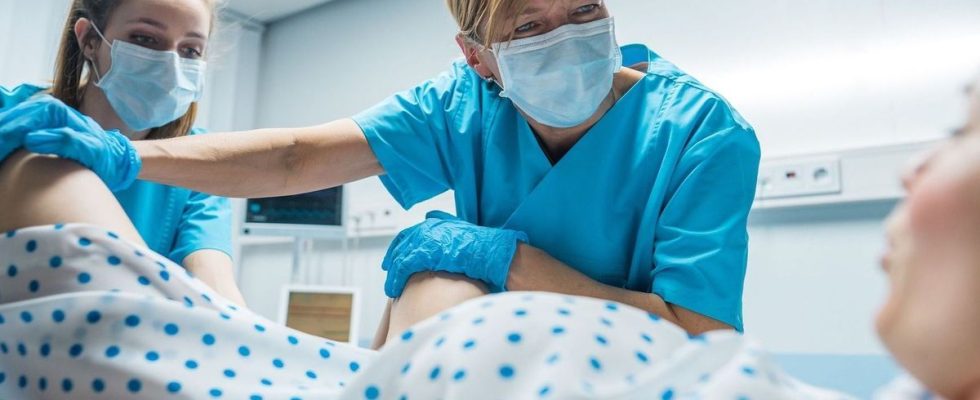Published on
Updated
Reading 3 min.
No, midwives are not just there for childbirth. They can also take care of gynecological monitoring, contraception, vaccination and soon instrumental abortion: their skills have expanded over the past 20 years, but remain largely unknown.
“When we ask the question, everyone knows that midwives are present at the time of a birth. But all gynecological follow-up is in the shadows“, regrets Isabelle Derrendinger, president of the National Council of the Order of Midwives.
From city centers to medical deserts, “too few women know that as long as they are in good health, they can come and see us” throughout their lives, for their preventive examinations such as smear tests, the prescription of contraception, including the insertion of an IUD, she continues. Midwives have, however, had these skills since 2009.
To promote access to care, in a context of medical desertification, public authorities have since amended the law several times, allowing this profession to detect and treat certain sexually transmitted infections (STIs), prescribe certain medications or perform abortions. medicinal products.
A decree, published on Sunday, now allows them – after training – to perform instrumental abortions in a hospital environment, the only place where these abortions can be performed.
Another text gave them in August the possibility of vaccinating the entire population according to the vaccination schedule (except immunocompromised people). Since 2021, they can also screen and treat certain STIs in their patients’ partners.
“See you during the week”
“Of course, we do not treat people with hepatitis or HIV, whom we refer to a doctor. But we can treat chlamydia (a sexually transmitted infection), for example.“, explains Prisca Wetzel-David, president of the National Union of Midwives (UNSSF).
In her Parisian office, Ms. Wetzel-David “very regularly” receives women who are amazed, “informed by a friend, a colleague”, after having “lolong time looking for a gynecological appointment“. Some “also come because their mutual insurance companies do not adequately cover excess fees for doctors“.
Trinh Nguyen-Dinh, 32 years old and living in the Paris region, “discovered this possibility” at the end of 2022.At my gynecologist, always overwhelmed, I made an appointment at least six months in advance, sometimes more. One day, I got fed up. I hadn’t seen anyone for two years and a friend recommended a male midwife who was following her. I had an appointment this week. It was great“.
Pregnant a few months later, she chose to be followed by a midwife. “The consultations are long, I always had the feeling that she had time to answer my questions and reassure me. I only saw the gynecologist at the eighth month, in the maternity ward“, she says. Another midwife now monitors breastfeeding at home.
“This monitoring of pregnancy from A to Z with a midwife in town is increasingly widespread, it is possible as long as there are no pathologies“, underlines Caroline Combot, who works in Belfort and chairs the ONSSF (National Organization of Midwives’ Unions).
Spotting domestic violence
Since this fall, pregnant women can even register a so-called “referent” midwife, responsible for coordinating their pregnancy journey: organizing the administrative aspect, the link with the other caregivers involved, etc.
A large third of the 24,354 midwives identified at the start of 2023 had a liberal, or partly liberal, activity, compared to 20% in 2012, according to figures from the Minister of Health. The profession of midwife is accessible after six years of study.
“Women under 30 are increasingly better informed“but the others “much less”, despite the necessary screening for STIs and cancers, regrets Ms. Combot, who calls for “a real communication campaign“, with spots and posters.
According to an Ifop study carried out in 2022 for the Qare platform, one in three women had not consulted a gynecologist for more than two years, and 22% for three years.
And the role of midwives is expected to continue to grow, particularly in sex education, addiction prevention and the detection of domestic violence.
But the activityis increasing much faster than the number of professionals” And “our deadlines are also getting longer“, observes Prisca Wetzel-David, who calls for giving”more attractiveness to the profession“.
